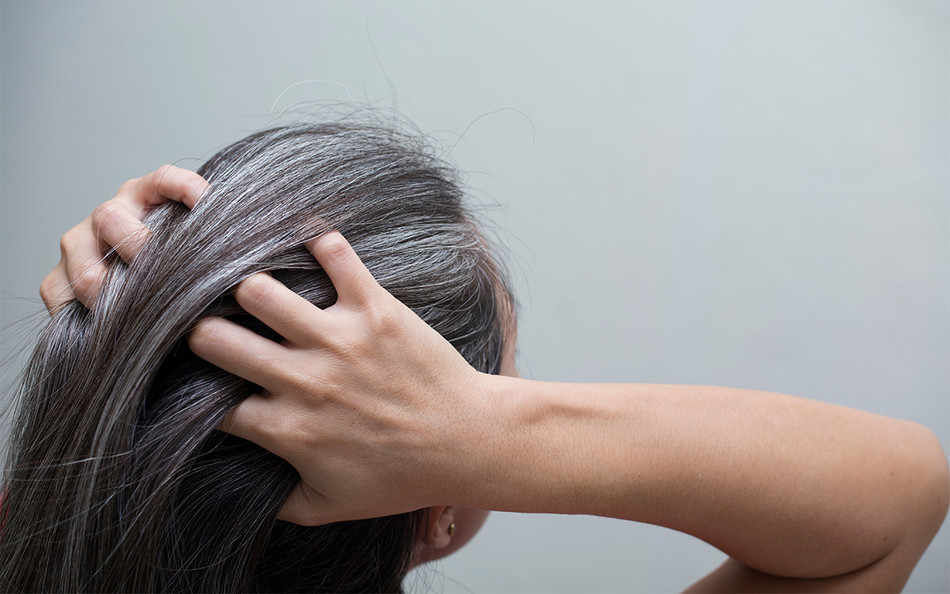The idea that psychological stress will turn your hair grey has long been dismissed as a myth by many scientists, but a team of Columbia researchers has now shown that the greying process is actually kickstarted by stress hormones — and that it may even be reversible.
The study, the first of its kind on human subjects, appears in a recent issue of the journal eLife. It was led by Martin Picard, an associate professor of behavioral medicine at Columbia University Irving Medical Center whose work focuses on the biology of aging. Picard and his colleagues, in an attempt to understand why some strands of hair succumb to the aging process before others do, collected samples from volunteers who were just beginning to go grey. They looked specifically for hairs with a distinctive two-tone appearance: fully colored at the tips but ashen at the roots. By comparing the coloration patterns on such newly blanched hairs against “stress diaries” that participants kept to document their moods over time, the researchers came to the unmistakable conclusion that anxiety can drain hair of color. Picard’s team even revealed the molecular mechanisms at work, finding evidence that hair cells respond to stress hormones by shutting down production of dozens of their own proteins, some of which are involved in making pigments.
But what really surprised the researchers is that once participants recovered from a particularly stressful event, such as a romantic breakup, grey hairs often started producing pigment again. “There was one individual who went on vacation, and five hairs on that person’s head reverted back to dark,” says Picard.
While reducing stress in your life is always a smart move, the researchers say that the effects on hair color are sporadic and temporary, since stress is only one factor among many that influence the age-related breakdown of cells. However, the new study could have much broader implications. “Understanding the mechanisms that allow ‘old’ grey hairs to return to their ‘young’ pigmented states could yield new clues about the malleability of human aging in general and how it is influenced by stress,” Picard says. “Our data add to a growing body of evidence demonstrating that human aging is not a linear, fixed biological process but may, at least in part, be halted or even temporarily reversed.”



